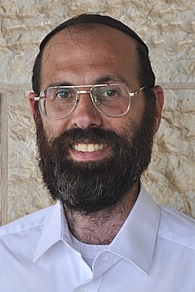Derech Eretz Precedes Torah
By: Rav Meir Orlian
The central theme of Parshat Yitro is the giving of the Torah at Mt. Sinai. We would expect Chazal to elaborate here on the value of Torah, which is the "cherished tool" of Hashem, and about the worth of talmidei chachamim who delve in Torah with toil and effort. Yet, while Chazal discuss this at length elsewhere, on this parsha Chazal preferred to focus on the behavior and qualities of Moshe Rabbeinu, the recipient of the Torah. Rashi cites their comments:
· "Moshe went up to G-d." All of his ascents were early [in the morning]," as it says, "Moshe awoke early." (19:3)
· "Moshe brought back the people's words to Hashem" ... Was it necessary for Moshe to bring back? Rather, the verse comes to teach you derech Eretz from Moshe, that he did not say, since the one who sent me knows, I do not have to reply. (19:8)
· "From the mountain to the people." This teaches that Moshe did not turn to his dealings, but from the mountain to the people.
Furthermore, after the Ten Commandments, Chazal saw fit to expound upon the moral lessons that flow from the mitzvot regarding the building the Altar: "When you make for Me an Altar of stones, do not build them hewn, for you will have raised your sword over it and desecrated it. You shall not ascend My Altar on steps, so that your nakedness will not be uncovered upon it." (20:22-23) Rashi explains, based on the Mechilta:
· If even stones that do not see and do not hear and do not speak, because they bring about peace the Torah says, "Do not raise over them metal," one who brings about peace between man and his wife, between family and family, between man and his friend – all the more so that tribulation will not come upon him!
· If even stones that do not have a mind to care about their degradation the Torah says, since they have a purpose do not deal with them embarrassingly, your friend, who is in the image of your Creator and cares about his embarrassment – all the more so!
Why did Chazal see fit to emphasize the character and practices of Moshe before matan Torah, and the ethical lessons of the mitzvot just after matan Torah?
Perhaps Chazal wanted to emphasize that the mitzvot are not merely religious worship. This was Pharaoh's mistake during the whole time of the plagues, as he understood the service of Hashem to be sacrificial worship alone. Therefore, when Moshe said: "With our youngsters and with our elders shall we go; with our sons and with our daughters, with our flock and with our cattle shall we go" (10:9), Pharaoh responded: "Not so! Let the men go and serve Hashem, for that is what you are asking." (10:11) Sacrificial worship suffices with the participation of men alone. The truth, though, is that the service of Hashem is an all-encompassing way of life, which is intended to elevate man.
Thus, the prerequisite preparation for receiving the Torah is the improvement of character, as Chazal say, "Derech Eretz precedes Torah." For this reason, Chazal emphasized the notable traits of Moshe Rabbeinu, who was fit to receive the Torah. Chazal further taught in the beginning of Vayikra Rabbah (1:15):
"He called to Moshe, and Hashem spoke to him" ... Any talmid chacham that does not have decency, a carcass is better than he. You can learn this from Moshe – the father of wisdom, the father of prophets, who took Israel out of Egypt and through him many miracles were done in Egypt and awesome deeds at the Red Sea, and went up to the heavens and brought down the Torah and was involved in the building of the Mishkan – yet he did not come all the way in until [Hashem] called him, as it says, "He called to Moshe."
So, too, a person should derive the moral lessons that flow from the mitzvot and his learning. In fact, Chazal teach: "The mitzvot were given in order to refine people through them." (Bereishit Rabbah 44:1) Through this a person emulates Hashem, as it says: "Follow His ways – cling to His traits." As an example of this, Chazal mentioned the ethical lessons that flow from the mitzvot of the Altar. So, too, a person should derive lessons from all of the mitzvot and purify his personality.
Thus, the epitome of being a ben Torah and ben Yeshiva is sanctifying G-d's name through one's behavior:
"Love Hashem, your G-d" – G-d's Name should be beloved through you, that one should read and learn, and serve talmidei chachamim, and his dealings with people should be polite. What do people say about him? Fortunate is his father who taught him Torah, fortunate is his teacher who taught him Torah; woe to people who did not learn Torah. So-and-so who learned Torah – see how pleasant his ways are, how proper his actions are. About him the pasuk says, "He said to me, you are My servant, Yisrael in whom I am glorified."
Shiur ID: 3677
Do you have a comment or question on the shiur?
Comment below and we'll join the discussion
Add your comments:


 (1).jpg)

.jpg)


.jpg)